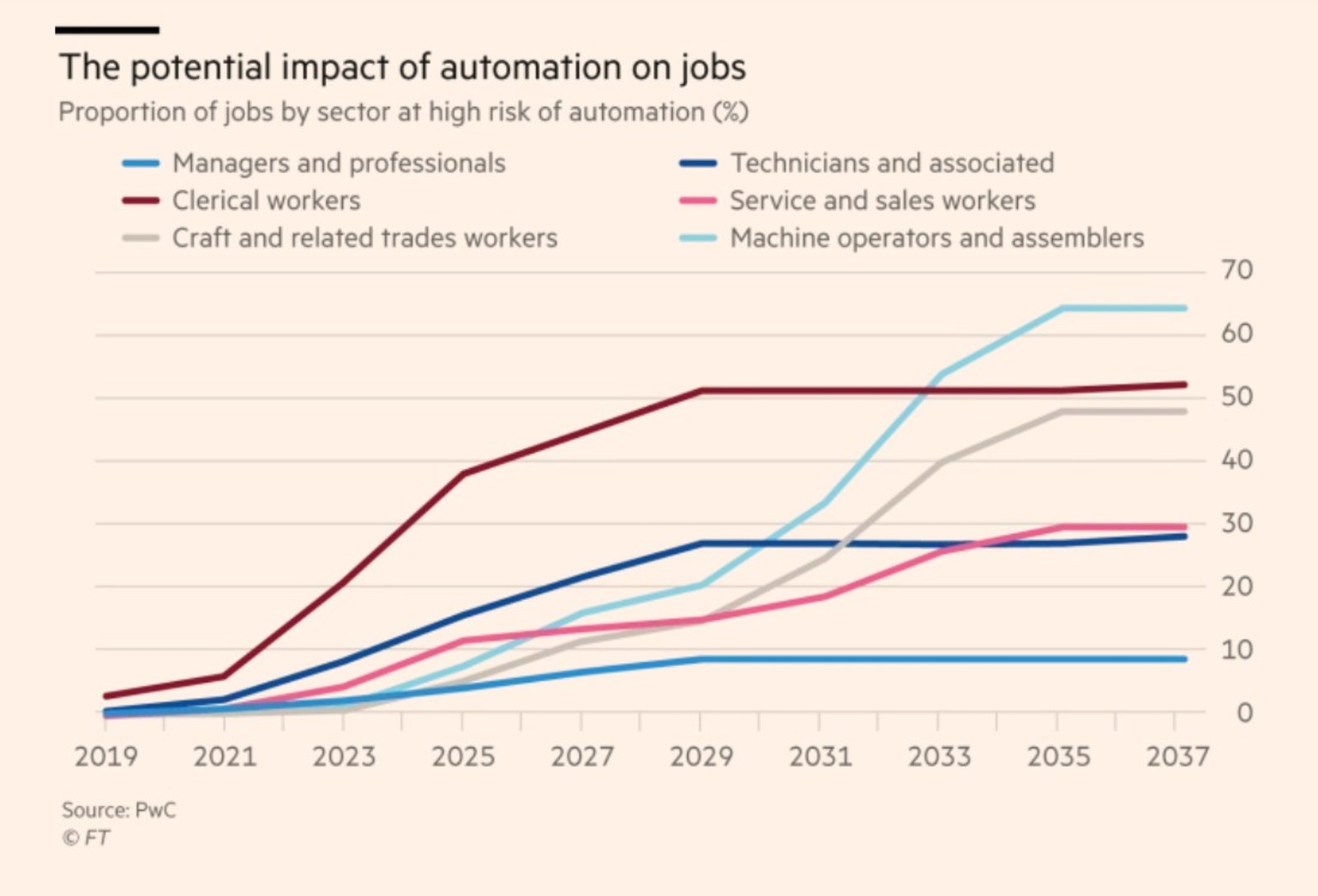Machine learning and big data analysis set to transform white-collar jobs

Machine learning and big data analysis set to transform white-collar jobs: White-collar jobs may be swept away faster by digital change than in any previous economic transformation, but employees will reap the benefits of machine learning, writes Robert Wright in the Financial Times. As machine learning systems become more sophisticated, their ability to spot patterns in large pools of data, undetectable to humans, opens up new possibilities for workplace efficiency and productivity. The change is expected to impact more than basic jobs, instead extending to previously unforeseen areas like law, that were thought to be immune to the robot takeover because they require more judgment and analysis. Nearly a third of jobs in finance and insurance in developed economies may be automated by 2029, as well as 50% of all clerical roles, research from PwC shows.
But the robots learn slowly, and probably can’t supplant us entirely: Whether it’s complex analytical and sorting work — such as the assessment of insurance claims — or using motor-like skills to lift a piece of wood, machine learning systems need time and a lot of human feedback to learn. While cost-effective in the long term, they are cost- and effort-intensive in the short term. So although it is straightforward for workplace systems to automate standardized processes or conduct a relatively superficial analysis of documents, anything that requires greater nuance, flexibility, judgement, or relationship-building is still dependent on human input. The automation of white-collar jobs will therefore likely happen at a slower rate than predicted, says the head of global research and development for the law firm Baker McKenzie, with new technologies being gradually introduced alongside employees, rather than replacing them.